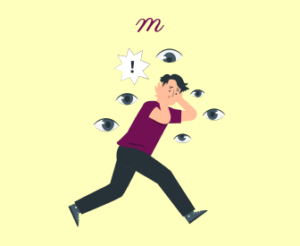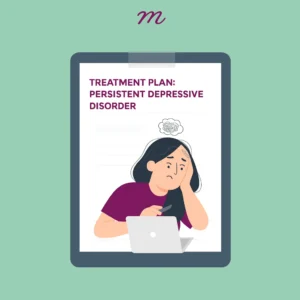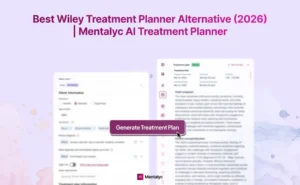Empowering Mental Health Professionals, Students, and the Community through Psychoeducation
So you’re curious about psychoeducation, huh? Well, let me tell you – this is one tool you want in your mental health arsenal. Whether you’re a seasoned therapist or still in school, psychoeducation is all about educating your clients and their loved ones about mental health conditions and treatment options. It’s a powerful way to increase understanding and coping strategies, ultimately giving people the power to manage their conditions better. Now, I know what you’re thinking – isn’t that a lot of work? Well, yeah, it can be. But let me tell you, the benefits are worth it. Reduced symptoms and relapse rates are just a couple of the many benefits you’ll see when you incorporate psychoeducation into your practice.
In this blog, we’re going to dive into how you can improve your psychoeducation skills and apply them to a wide range of conditions, from schizophrenia and depression to anxiety and beyond. Trust me, this is something every mental health professional should have in their toolbox. So stick around – you’re about to learn why psychoeducation is valuable and how it can make a real difference in people’s lives.
What Is Psychoeducation? Definition, Purpose & How It Works as a Therapeutic Intervention
Psychoeducation is a highly effective intervention that involves mental health professionals teaching clients about their specific mental health conditions and the various treatment options available. This intervention equips clients with valuable knowledge and skills to manage their symptoms better and cope with challenges in their daily lives. By increasing clients’ understanding of their condition and empowering them with coping strategies and self-management skills, psychoeducation aims to help clients make informed choices about their treatment and recovery journey.
For mental health professionals, incorporating psychoeducation into their practice is an excellent way to improve their understanding of different disorders and the struggles clients face daily. It enables them to offer more targeted support to clients and help them take charge of their condition, leading to better outcomes. Psychoeducation involves using materials like workbooks, handouts, videos, and open discussions to convey information to clients and their families. While it may be time-intensive, the potential benefits, like reduced symptoms, relapse prevention, and empowerment, make psychoeducation a valuable and worthwhile intervention.
The Four Key Components of Effective Psychoeducation
It’s important to remember that psychoeducation is not a cure, but it can be a valuable tool to help you live well with your diagnosis. This approach combines education and therapy to help you better understand and develop skills to manage your condition. While it may take time to see results, embracing psychoeducation can lead to a higher quality of life and better outcomes in the long run. Four key components to this approach can help you gain the knowledge and skills you need to thrive:
Information
Psychoeducation involves learning about your diagnosis, symptoms, treatment options, and available resources. Providing your clients with accurate information about their condition can help alleviate confusion and anxiety.
Coping Strategies
Psychoeducation teaches practical coping techniques like scheduling enjoyable activities, exercising, journaling, and deep breathing to help clients feel more in control of their condition.
Communication
Psychoeducation can help you communicate better about your illness with your loved ones. Expressing your experience and needs to your support system makes psychoeducation invaluable.
Problem-Solving
Psychoeducation will help clients apply what they have learned to solve everyday problems. Discussing situations that trigger symptoms will help you plan how to respond to stay well. Problem-solving is empowering.
Implementing Psychoeducation in Therapy: Techniques and Strategies
As a mental health practitioner, successfully implementing psychoeducation requires specific strategies and techniques. To ensure effective psychoeducation, it is vital to use various methods such as interactive discussions, written materials, and demonstrations. It is essential to tailor the approach to meet clients’ specific needs and learning styles. We recommend to focus on the following critical areas to achieve the desired results:
- Educating clients about their diagnosis and treatment options. Provide clients with an explanation of their symptoms and causes to help them better understand themselves and reduce stigma.
- Teaching coping strategies. Show clients techniques such as cognitive restructuring, relaxation, and problem-solving to help them manage symptoms better. Practice and role-play these strategies together.
- Encouraging social support. Assist clients in identifying sources of social support and recommend ways to enhance connections with others, such as participating in local support groups.
- Promoting medication compliance. It is important to thoroughly explain the prescribed medication’s purpose and potential side effects to clients. Work with them to establish a medication schedule that maximizes benefits and then follow up to ensure understanding and address any concerns.
By implementing these techniques, you can deliver high-quality psychoeducation. Focus on interactive sessions, building rapport, and regularly checking in on clients’ needs and understanding. With practice, psychoeducation can become an impactful part of your work.
The Advantages and Disadvantages of Using Psychoeducation in Mental Health Treatment
Psychoeducation is a practical and valuable approach that benefits both clients and practitioners. It involves educating clients about their mental health condition, providing them with coping strategies, and equipping them with skills to manage their symptoms. This information empowers clients to take control of their health, reduce the risk of relapse, and increase treatment adherence, especially for severe mental illnesses like schizophrenia or bipolar disorder.
In addition to improving client outcomes and satisfaction, psychoeducation can strengthen therapeutic alliances, promote job satisfaction, and reduce stigma. Although developing and facilitating such programs can be challenging and time-consuming, it is worth the effort. By staying up-to-date with the latest findings and best practices, practitioners can tailor their approach to each client’s situation and increase compliance. Ultimately, psychoeducation can be an essential aspect of any mental health treatment plan.
Although it can be an efficient treatment method, clinicians need to be aware of the drawbacks associated with psychoeducation. Some key disadvantages of psychoeducation for clients include:
- Information overload. Clients may need assistance processing and retaining new information. Overwhelming amounts of information can be confusing.
- Limited applicability. The information provided in psychoeducation is generalized and may need to be tailored to each client’s specific situation and needs. Clients may require assistance applying broad concepts to their own experiences.
- Dependence on motivation. Psychoeducation relies on motivated clients to learn and implement strategies. Disengaged or reluctant participants may benefit less.
- Increased anxiety. When clients receive their diagnosis and potential difficulties, they may experience anxiety, worry, or fear. It is necessary to balance information with reassurance and hope.
- Difficulty implementing strategies. Although clients may gain knowledge of coping strategies, they might require additional support and practice to implement them effectively in their daily lives.
Psychoeducation for Schizophrenia
Psychoeducation is a crucial process for individuals diagnosed with schizophrenia and their families. It aims to educate them about the nature of the mental illness, treatment options available, and effective coping mechanisms. This two-way process helps them to understand the condition, its causes, and its symptoms, allowing them to develop daily strategies for managing the illness. By providing individuals and families with the knowledge and skills they need to cope with schizophrenia, psychoeducation reduces the likelihood of relapse, improves treatment outcomes, and enhances overall satisfaction with care.
The psychoeducation for schizophrenia is comprised of four components.
- The first element to providing psychoeducation for schizophrenia is sharing information about its symptoms and progression. This helps to reduce the fear, stigma, and clear preconceived ideations that may be associated with the disorder.
- The second element is assisting individuals to develop coping mechanisms to manage their symptoms and stress. Clients can take control of their condition by learning to identify triggers and warning signs.
- The third element is medication education. By understanding how and why medications work, individuals are more likely to comply with their treatment and enjoy its benefits.
- The fourth and final element is family education. Educating families about the disorder can improve support and reduce conflict, criticism, and highly expressed emotions that may worsen symptoms.
Psychoeducation for Depression
Psychoeducation for people with depression aids in better understanding their condition, including its causes, symptoms, and available treatment options. This can be achieved in various ways, such as reading pamphlets, visiting websites, talking to a doctor, or attending therapy sessions. By combining education about the disorder with traditional therapy techniques, people can become more active participants in their treatment and better manage their condition.
Some of the essential items covered in psychoeducation for depression include:
- Learning about symptoms of depression like feelings of hopelessness, changes in sleep/appetite, and difficulty concentrating.
- A variety of factors, including genetics, trauma, stress, medical issues, and relationship problems, can cause depression.
- Individuals should explore therapy, medication, lifestyle changes, and self-help strategies when considering treatment options. Weighing the pros and cons of each can help determine what works best for them.
- Challenging negative and self-defeating thoughts. Learning cognitive techniques to reframe negative thoughts in a more balanced and realistic way.
- Making a plan to take action, developing coping strategies and problem-solving skills, and setting small achievable goals and steps toward recovery are essential for managing symptoms effectively.
The primary benefits of psychoeducation for depression are gaining knowledge and awareness about the disorder and tools to help overcome it. Support and guidance from a mental health professional may be necessary to facilitate real change, as information alone may not suffice for some individuals.
Psychoeducation for OCD
Understanding the nature and symptoms of OCD is crucial for effective treatment. Psychoeducation plays a vital role in educating individuals and their loved ones about the disorder, correcting misconceptions, and addressing feelings of self-blame. By identifying common OCD symptoms and educating caretakers about the disorder, psychoeducation can reduce criticism and conflicts at home. This approach allows clients to learn about their symptoms and understand which ones cause the most distress, leading to better management of the disorder. By reducing criticism, blame, and conflict at home, psychoeducation can help alleviate OCD symptoms, making it an essential step toward recovery.
Psychoeducation for OCD additionally addresses some crucial topics that are essential to understand, such as:
- OCD is caused by a biochemical imbalance in the brain, and neurological factors drive intrusive thoughts and compulsions.
- Therapy techniques can help patients manage and reduce intrusive thoughts. Medication can correct biochemical imbalances in the brain.
- Coping strategies help patients manage anxiety, resist compulsions, and offer relapse prevention techniques. This includes distraction techniques, thought-stopping, relaxation exercises, and scheduling compulsions to reduce severity. Additionally, clients can learn to manage triggers, resist compulsions, and break unhelpful habits that worsen their symptoms.
- Emphasizing that gaining knowledge about OCD is an essential first step, but professional treatment is still needed to make significant progress and reduce symptoms over time.
Psychoeducation for Bipolar Disorder
Living with bipolar disorder can be challenging not just for the person diagnosed but also for their loved ones. However, psychoeducation can provide a great deal of comfort and support by equipping them with the tools to manage the illness effectively. This therapy aims to improve coping mechanisms, encourage compliance with prescribed medication, and minimize the chances of relapse. It uses various teaching methods such as lectures, written materials, discussion, and role-playing to help individuals and their families better understand the condition.
With psychoeducation, individuals can gain fundamental tools to navigate their journey toward wellness and a better quality of life. Some of these tools include:
- Gaining knowledge about the disorder, its symptoms, and the available treatments. Understanding these aspects can reduce the stigma surrounding the disorder and empower individuals to recognize mood changes early on.
- Learning about coping strategies that can help stabilize mood and prevent bipolar episodes is essential. These strategies include maintaining a routine, limiting stress, and staying socially active. By incorporating these strategies, individuals can better understand their condition and learn to manage their symptoms more effectively.
- Underscoring the importance of communication and problem-solving skills. Learning to express one’s needs, set boundaries, and work through challenges with others can help individuals improve their relationships and reduce the impact of bipolar disorder on their lives.
- Equipping individuals with resources and support. Connecting with local support groups and crisis hotlines can provide a safety net during difficult times and help individuals navigate the challenges of living with bipolar disorder.
Psychoeducation for Substance Abuse and Addiction
Learning about substance abuse and recovery through psychoeducation can be a transformative experience for clients and their loved ones. It helps individuals understand the nature of their addiction and how substances impact their brain and body and equip them with the skills and strategies needed to support their recovery. Psychoeducation employs interactive techniques like discussions, videos, workbooks, and role-playing to foster insight into addiction and empower individuals to make positive changes.
The four critical components of psychoeducation for addiction include:
- Information on the specific substance(s) of abuse, including their short-term and long-term effects. This should cover physical effects like organ damage, weight fluctuations, and health issues; cognitive effects like memory loss, concentration difficulties, and impaired judgment; and psychological effects like depression, anxiety, and paranoia.
- Clients should learn about the cycle of addiction and how it can be broken. They need to understand that cravings, urges, and rituals play a significant role in perpetuating addiction. Additionally, they should learn about triggers that lead to substance use, early warning signs of a craving or urge to use, and how to break the ritual of substance use.
- Coping strategies to prevent relapse include identifying triggers and cravings, avoiding high-risk situations, practicing urge surfing and distraction techniques, and confiding in a supportive person during difficult times.
- Informing clients about the advantages of treatment, social support, and lifestyle changes. Support groups such as AA or NA can provide a great source of encouragement, and staying connected with family and friends can also be beneficial. Additionally, lifestyle changes such as regular exercise and maintaining a healthy diet can positively impact overall well-being.
Psychoeducation for Conversion Disorder
As a mental health professional, providing psychoeducation on conversion disorder is crucial to help clients feel educated and less distressed. Psychoeducation can be a valuable first step when it comes to treating conversion disorder. Educating clients about the condition, including its symptoms, causes, and treatment options, allows them to feel more in control and less fearful. This sense of empowerment can lead to active participation in their recovery and a better understanding of the triggers underlying their symptoms.
Some important topics to cover in psychoeducation for conversion disorder are:
- Conversion disorder produces real physical symptoms such as paralysis, seizures, or blindness, but the underlying cause is psychological. Often, stress, trauma, or emotional conflict can trigger these symptoms.
- Reassure clients that although the symptoms can be frightening, they are not dangerous and can be treated with psychotherapy.
- The mind-body connection plays a crucial role in conversion disorder, and emotions can manifest in physical ways. You can provide examples of common conversion symptoms to help your client understand.
- Explain that medical tests will show no underlying physical cause because the symptoms are functional, not structural. It’s important to reiterate that these symptoms are real and not imagined.
- Discuss evidence-based treatment options, particularly psychotherapy approaches like CBT, can help identify the underlying triggers and provide coping strategies. You should also discuss the prognosis for recovery.
- Educate family members and encourage their support. Explain that conversion disorder is not a result of “putting on an act” or “just seeking attention.” Their compassion and patience will be helpful during the recovery process.
Psychoeducation for Anxiety
Psychoeducation for people with anxiety is not only about providing information but also about demonstrating empathy and compassion towards your clients. When you show kindness and compassion, you can increase their understanding of anxiety and motivation for treatment, which can be life-changing. It is essential to take the time to explain anxiety and the available options for managing its symptoms in a way that is easy to understand and relatable. Your clients will be grateful for your guidance and support in overcoming their fears and leading more fulfilling lives.
Here are some key points to cover:
- Anxiety is a normal human emotion that we all experience. Explain the difference between normal anxiety and an anxiety disorder. Discuss the signs and symptoms of anxiety disorders.
- The biological, psychological, and environmental factors that can contribute to anxiety. Explain that anxiety disorders are often linked to a combination of these factors.
- Discuss medication, therapy, lifestyle changes, and self-help strategies as options for managing anxiety. Explain that therapy, especially CBT, is considered the most effective treatment.
- Inform your clients that they can continue using strategies learned in therapy to prevent anxiety from coming back. Explain that occasional anxiety is normal, but if symptoms start to interfere with life again significantly, seeking additional treatment may be needed.
- Provide resources for learning more about anxiety, accessing treatment, and connecting with support groups. Recommend helpful books, websites, nonprofits, support groups, and crisis hotlines.
Psychoeducation for Parents
Psychoeducation is an indispensable tool for therapists and counselors to help parents understand their child’s illness. By explaining the causes, symptoms, and course of the condition, psychoeducation aims to reduce misunderstandings and stigma around the disease. Parents can learn coping methods and lifestyle changes to prevent or reduce symptoms and improve outcomes. They can also understand the available treatment options, such as therapy, medication, and self-care, to make informed decisions for their child’s well-being. Finally, therapists and counselors can guide parents in communicating with empathy and kindness to create a supportive environment for their children’s health.
It’s crucial to use the time you have with parents to answer their questions about their child’s mental health. By providing parents with information through psychoeducation, they can better understand their child’s condition, reduce their fears, and provide effective support. When therapists, counselors, and parents work together, they can provide the best possible care for children with mental health conditions.
Psychoeducation FAQs: Common Questions About Mental Health Education & Skills
Why is psychoeducation important for mental health professionals?
Regardless of your experience, psychoeducation benefits both you and your clients. It:
- Improves treatment compliance by educating clients about their condition and options.
- Reduces relapse rates by teaching coping skills and early warning signs.
- Provides a shared understanding of the challenges and treatment plan.
- Keeps you up-to-date with best practices through continuous learning.
What techniques are used in psychoeducation?
Standard techniques include interactive discussions, written materials like workbooks or brochures, role-playing, mindfulness exercises, and homework assignments to practice new skills. Presenting information in a clear, relatable manner is vital.
What are some examples of psychoeducation topics?
Common psychoeducation topics include:
- Anxiety disorders like generalized anxiety disorder, social anxiety disorder, and panic disorder
- Depression and mood disorders
- Psychosis and schizophrenia
- Addiction and substance use disorders
- Personality disorders
- Stress management techniques
- Mindfulness and meditation practices
- Healthy lifestyle habits like nutrition, exercise, and sleep
Psychoeducation can cover any mental health topic relevant to the client’s diagnosis and treatment goals.
What skills are taught in psychoeducation?
Some critical skills taught are:
- Relaxation techniques like breathing exercises, progressive muscle relaxation, and visualization
- Cognitive restructuring to identify and challenge negative or unhelpful thoughts
- Problem-solving skills to cope with stressors and triggers in a constructive way
- Communication and assertiveness training
- Emotion regulation strategies like distraction, journaling, and talking to others
- Healthy coping strategies like exercise, meditation, and seeking social support
- Early warning signs of relapse and a crisis plan
The specific skills taught will depend on the client’s needs and mental health condition.
The Bottom Line: Why Psychoeducation Is Essential in Mental Health Treatment
Psychoeducation is a powerful tool that can transform the lives of your clients. By providing them with the knowledge and skills to better understand and manage their conditions, you can empower them to grow and thrive. With time, you will witness their insight and coping abilities flourish as they take control of their own lives. Remember to keep learning and improving your craft, and continue spreading the power of knowledge. Your dedication to your clients will undoubtedly profoundly impact their journey towards mental wellness.
Are you feeling overwhelmed by the demands of clinical documentation? Mentalyc is here to help you navigate this journey with ease and compassion. Our mission is to support you every step of the way, empowering you to enhance your workflow, stay ahead of the game, and reach new heights in your practice. We want to offer you a complimentary trial to make things easier. So why wait? Join the Mentalyc community today and let us help you take your clinical documentation to the next level with empathy and care.
Resources:
- Belmont, J. (2017, June 12). Strategies for Running an Effective Psychoeducational Group. Psych Central. https://psychcentral.com/pro/psychoeducation/2017/06/strategies-for-running-an-effective-psycho-educational-group#1
- Bäuml, J., Froböse, T., Kraemer, S., Rentrop, M., & Pitschel-Walz, G. (2006, October). Psychoeducation: A Basic Psychotherapeutic Intervention for Patients With Schizophrenia and Their Families. National Library of Medicine. https://www.ncbi.nlm.nih.gov/pmc/articles/PMC2683741/
- Cleveland Clinic. (n.d.). Conversion Disorder: What it is, Causes, Symptoms & Treatment. https://my.clevelandclinic.org/health/diseases/17975-conversion-disorder
- Grouport Online Therapy. (2023, November 21). Exploring Psychoeducation: A Resourceful Tool for OCD Management. https://www.grouporttherapy.com/blog/psychoeducation-for-ocd
- Nash, J. (2021, December 5).How to Perform Psychoeducation Interventions: 14 Topics. Positive Psychology. https://positivepsychology.com/psychoeducation/
- Psychiatric Times. (2012, February 8).An Evidence-Based Practice of Psychoeducation for Schizophrenia. https://www.psychiatrictimes.com/view/evidence-based-practice-psychoeducation-schizophrenia
- Sarkhel, S., & Arora, M. (2020, January 17).Clinical Practice Guidelines for Psychoeducation in Psychiatric Disorders General Principles of Psychoeducation. National Library of Medicine. https://www.ncbi.nlm.nih.gov/pmc/articles/PMC7001357/
Why other mental health professionals love Mentalyc

“Do yourself a favor, make your life easier. I found Mentalyc to be one of the best tools that I’ve ever used.”
Licensed Marriage and Family Therapist

“If I were recommending this software to a colleague, I would tell them that it is the best thing that they could do for their practice.”
Licensed Professional Counselor

“For anyone hesitant: this is a lifesaver. It will change your life, and you have more time to be present with your patients.”
Licensed Clinical Social Worker

“It immediately changed my quality of life, personally and professionally.”
Owner/Independently Licensed Marriage & Family Therapist (LMFT)







